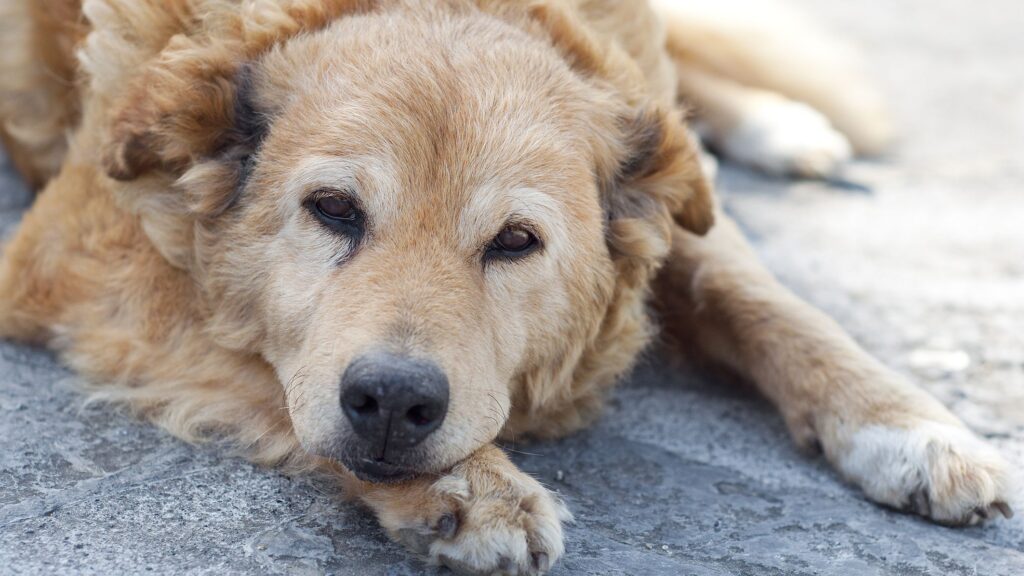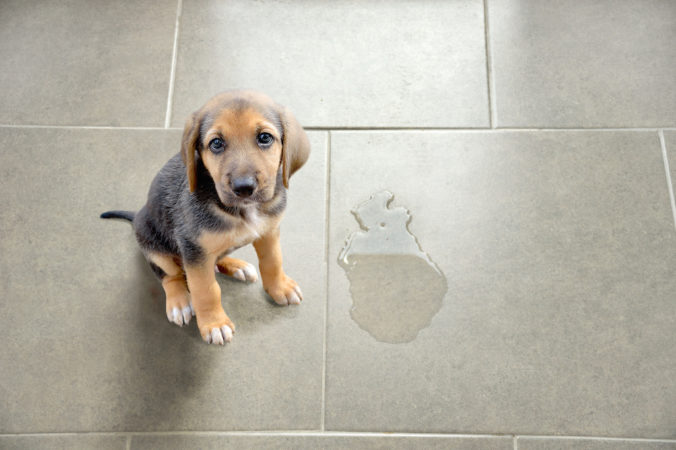Urinary incontinence-the inability to hold urine in the bladder-is not an uncommon occurrence in older dogs. This is just one more example of how similar humans and dogs are as they age. Be prepared to tell your vet:
When you first noticed your dog was incontinent. For some dogs, it only happens occasionally while they are sleeping. The urethral muscles aren’t as strong as they used to be, so your dog has a harder time holding urine than he did when he was younger. For female dogs, it can be due to lower estrogen levels. Lower estrogen levels can also lead to a loss of muscle tone in the urethra, which can then result in what is referred to as “spay incontinence.”
Urinary incontinence can also be a symptom of underlying conditions, like bladder infections and neurologic problems (ex. a disc bulge or rupture). Your dog can also appear to be unable to control his bladder when, in fact, he has an illness-such as such as diabetes and kidney disease-that is significantly increasing the amount of urine his kidneys produce.
Increased urine production can cause inappropriate urination, or urinating in areas where he typically doesn’t urwithinate (ex. in the house). The increased urine results in a need to urinate more frequently and often with increased urgency. So your dog may not be able to “hold it” through the night or when you are at work during the day. Urinating inappropriately can also be caused by behavioral problems. In any case, you should take your dog to the veterinarian to determine the exact cause.
Treatment
Depending on the nature of your dog’s incontinence, it can often be cured or, at the minimum, controlled.
When you take your dog to the veterinarian, he or she may ask you a number of questions to determine the cause of your pet’s incontinence.
- - There are a number of factors that can lead to urinary incontinence.
- - When it usually occurs. For example, does it happens while your dog is asleep or awake and active?
- - If your dog is dribbling as he walks or where he sits or sleeps, or does he posture and urinate?
- - If his urine has an unusual color or odor.
- - If you’ve noticed that your dog has difficulty urinating.
- - If your dog has been drinking more water than usual.
- - If your dog has any other unusual symptoms.
Should your vet rule out any underlying disease or illness as being the cause of your dog’s incontinence, he or she may decide to put your dog on medication. Many incontinence drugs that are given will help improve the tone of the muscles that hold urine in the bladder. Your vet will tell you which of these are most appropriate for your dog.
The most important thing is that you don’t reprimand your dog when he has an accident due to incontinence. He certainly isn’t doing it to spite you. And believe it or not, it’s just as upsetting to your pet as it is to you.


